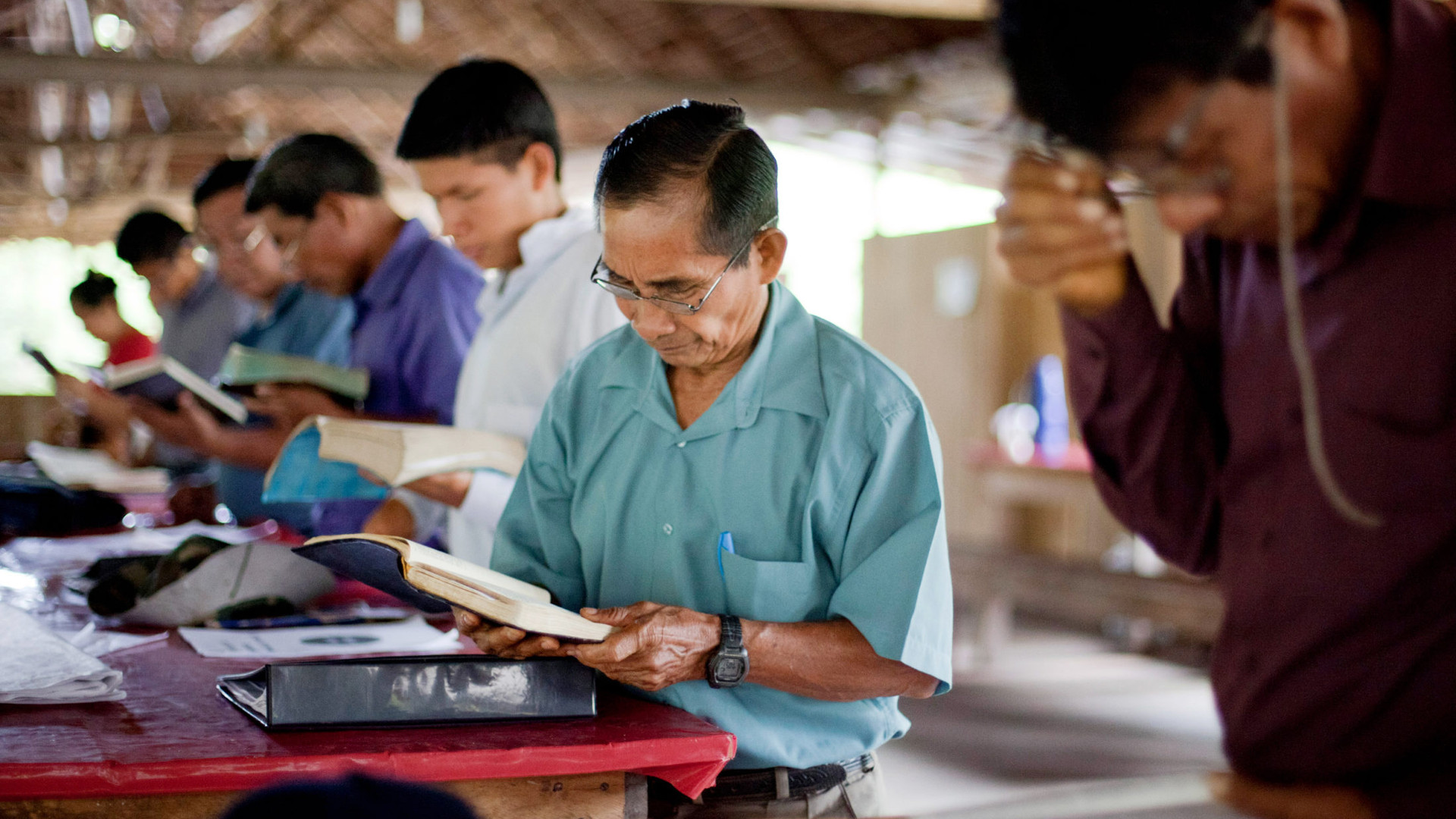
“Why should I take the time to go seminary when people are dying without Christ all over the world?” The young man asking the question was a prospective seminary student. The man he was asking, Dr. J. Christy Wilson, had grown up as a missionary kid in Iran and then spent most of his adult life ministering in a remote country in the hinterlands of Asia.
His reply was classically Central Asian: “A sharpened axe cuts down the tree faster.” His answer was in the form of a proverb, but the meaning was clear. Good preparation means that you will be more effective more quickly, and it is worth taking the time to get that preparation.
God Is Concerned about Preparation, Not Haste
Throughout the Bible, God demonstrates a greater concern for preparation than for speed. Moses spent forty years as a prince in Egypt and then forty more years tending sheep in the wilderness before God used him to lead the Israelites out of slavery. David was trained as a shepherd, as a soldier under Saul, and then as a fugitive from his former master before he became king over Israel.
The apostle Paul spent years in Tarsus after his conversion in Arabia and then was a teacher in Antioch before he began his career as a missionary. Even our Lord Jesus waited until he was thirty before he began his public ministry. There is clearly no sin in waiting, as long as the waiting is aligned with the purposes of God. Appropriate preparation is one of those purposes.
The Local Church Is the Missionary Greenhouse
Much of the preparation needed for missionary service happens in the church. A missionary is a disciple of Jesus who goes where Jesus is not yet known to make disciples for Jesus. The missionary himself or herself must be a growing disciple in order to be effective in making disciples of others, and this formative discipleship happens biblically in the context of a local church.
Basic discipleship in a church setting is the foundation for missionary preparation. This involves more than the head alone but includes the heart and the hands as well. An essential part of missionary preparation involves growing maturity in Christ, as the disciple puts to death the deeds of the flesh and puts on the character of Christ.
“Healthy discipleship in the context of a healthy church is vital for good missionary preparation.”
Things like arrogance or immorality or divisiveness or dishonesty or laziness or anything else that is inconsistent with the image of God needs to be put off. Things like compassion, kindness, humility, gentleness, patience, forbearance, forgiveness, and love need to be put on. This kind of transformation happens best in the fellowship of the body of Christ. So healthy discipleship in the context of a healthy church is vital for good missionary preparation.
Seminary’s Aim Is to Accelerate Necessary Preparation
However, there is also a knowledge component to missionary preparation. The missionary task is defined by the Bible, and the Bible is the primary tool, in the power of the Holy Spirit, that the missionary uses. This means that a missionary needs to know the Bible very well.
In many ways, cross-cultural service requires even greater skill in handling the Word of God than ministry in your own culture. Workers in new cultural contexts encounter issues they have never had to face before, and they must explain and apply God’s Word across cultural divides.
They must also learn to distinguish between what is biblical in their understanding of the faith and what is simply an expression of their own cultural background. Here is where seminary can be such a valuable tool in missionary preparation.
Specific Areas of Knowledge That All Missionaries Should Possess
- Biblical studies
Missionaries need to know the content of the Bible in the context of the flow of the biblical narrative, so biblical studies and biblical theology are essential. The biblical languages are especially helpful in Bible translation work, as well as in the exposition of Scripture in any setting.
- Systematic and historical theology
Missionaries need to know the great doctrinal themes of the Bible, so systematic theology is vital. They need to know how the people of God have wrestled with doctrine and practice around the world and through the ages, so historical theology and church history are extremely helpful.
- Evangelism and missions
Missionaries are going to share the gospel in a cross-cultural setting, so they will be greatly served by studying evangelism and missions. Missionaries bear a special responsibility as they establish and build the church where it hasn’t been before. As the apostle Paul reminds us, we need to take great care in how we build God’s church (1 Cor. 3:10–17). Seminary study gives missionaries the depth of understanding and the biblical tools to build well.
But Peter, James, and John Didn’t Go to Seminary. Why Should I?
Some caveats are in order. Obviously, seminaries, as we know them today, did not exist in the days of the early church. There are other ways to obtain the kind of knowledge and skills mentioned here. God can and does use people with a broad range of education and training in the spread of the gospel and the establishment of his church. Furthermore, not all seminaries have an equal commitment to the truthfulness and authority of God’s Word.
However, the missionary task is a serious and solemn thing. It warrants careful and thorough preparation. Diligent study at a biblically solid seminary provides knowledge and skills that are hard to duplicate in another setting. It is worth taking the time to get this kind of training. Remember, a sharpened axe cuts down the tree faster. Take the time to sharpen your axe.
Zane Pratt serves as the vice president of training for the International Mission Board.

